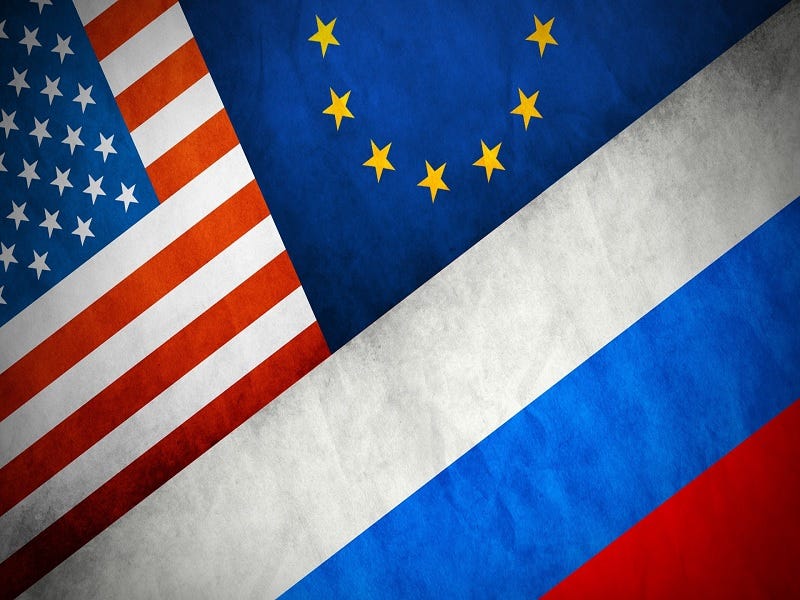President Putin is a consummate pragmatist who’ll never burn bridges with any country because he knows that international circumstances change so today’s rivals could become tomorrow’s partners.
The West’s unprecedented sanctions against Russia that were imposed in response to its special operation prompted that country to reorient its trade ties towards the Global South, yet President Putin recently made it clear that he isn’t closing the door on trade with that New Cold War bloc. He made his remarks at a “Meeting of the Council for Strategic Development and National Projects” last week and shortly after having earlier admitted his naivety about the West. Here’s what he said:
“Incidentally, I would like to note that we are not closing the door to the American continent, North America – the US and Canada or to the European countries. It is time they stopped fooling around, waiting for us to collapse. It has become clear to all – if they want to profit from cooperation with Russia, they need to do it. After all, we are not pushing them away.
But it’s up to them, this is their decision. Let them decide for themselves what they are guided by – some ephemeral considerations about Russia’s destruction or the interests of their own country, their own people, in developing international relations as a whole on the modern democratic foundations of a multi-polar world. But, again, this is their business.”
Some observers might interpret his latest words as signaling that he’s once again slipping back into naivety just days after claiming to have finally overcome his prior illusions about the West, but the argument can be made that both statements are complementary, not contradictory. After acknowledging his policy shortcomings in the past, he wanted to clarify that nobody should twist his mea culpa as meaning that he’s become “anti-Western” like some in the non-Mainstream Media now wrongly think.
President Putin is a consummate pragmatist who’ll never burn bridges with any country because he knows that international circumstances change so today’s rivals could become tomorrow’s partners. In this particular context, any theoretical resumption of Russian-Western trade would obviously be on different terms than the status quo ante bellum, but the economic logic behind them would remain. The West needs low-cost and reliable Russian hydrocarbons while Russia needs Western technology.
To be sure, both have proven their ability to survive without one another thus far, but each would do better if they could still rely on the other to meet their aforesaid needs like before. The reason why the sanctions haven’t already been lifted but instead continue intensifying is because European policymakers have been misled by likeminded American liberal-globalists into viewing this campaign as an ideological-moral crusade. This explains why they’re willing to accept such immense self-inflicted economic damage.
As NATO’s proxy war on Russia through Ukraine begins to wind down and the West’s strategic defeat starts dawning on its decisionmakers, there’s a chance that the abovementioned ideological-moral luster will dull and a debate might gradually emerge about whether it’s worth scaling back some of sanctions. That can’t be taken for granted, to be clear, but it also can’t be ruled out either. From the perspective of a consummate pragmatist like President Putin, this means that it’s worth extending an olive branch.
If he hadn’t done so at this pivotal moment in the conflict and right after his admission of naivety about the West, then Biden’s fearmongering about how Russia is supposedly plotting to attack NATO might have duped a larger number of average folks and policymakers alike. Instead, that information warfare narrative is now challenged by President Putin’s own words about how he isn’t closing the door on trade with the West, though his rivals first need to come to their senses in order to tap into this opportunity.
The Russian leader isn’t naïve like before so he knows that the chances of this happening are very low, but he nevertheless believes that it’s better to send positive signals in this respect than to send none at all, which would let his foes and misguided friends alike falsely frame him as “anti-Western”. Ascribing ideologically driven and zero-sum motives to a consummate pragmatist like President Putin is insulting, and he’s much too proud of a person to let his integrity be impugned like this without pushing back.





I doubt the diamonds sanctions will hurt Russia much. There's always mules.